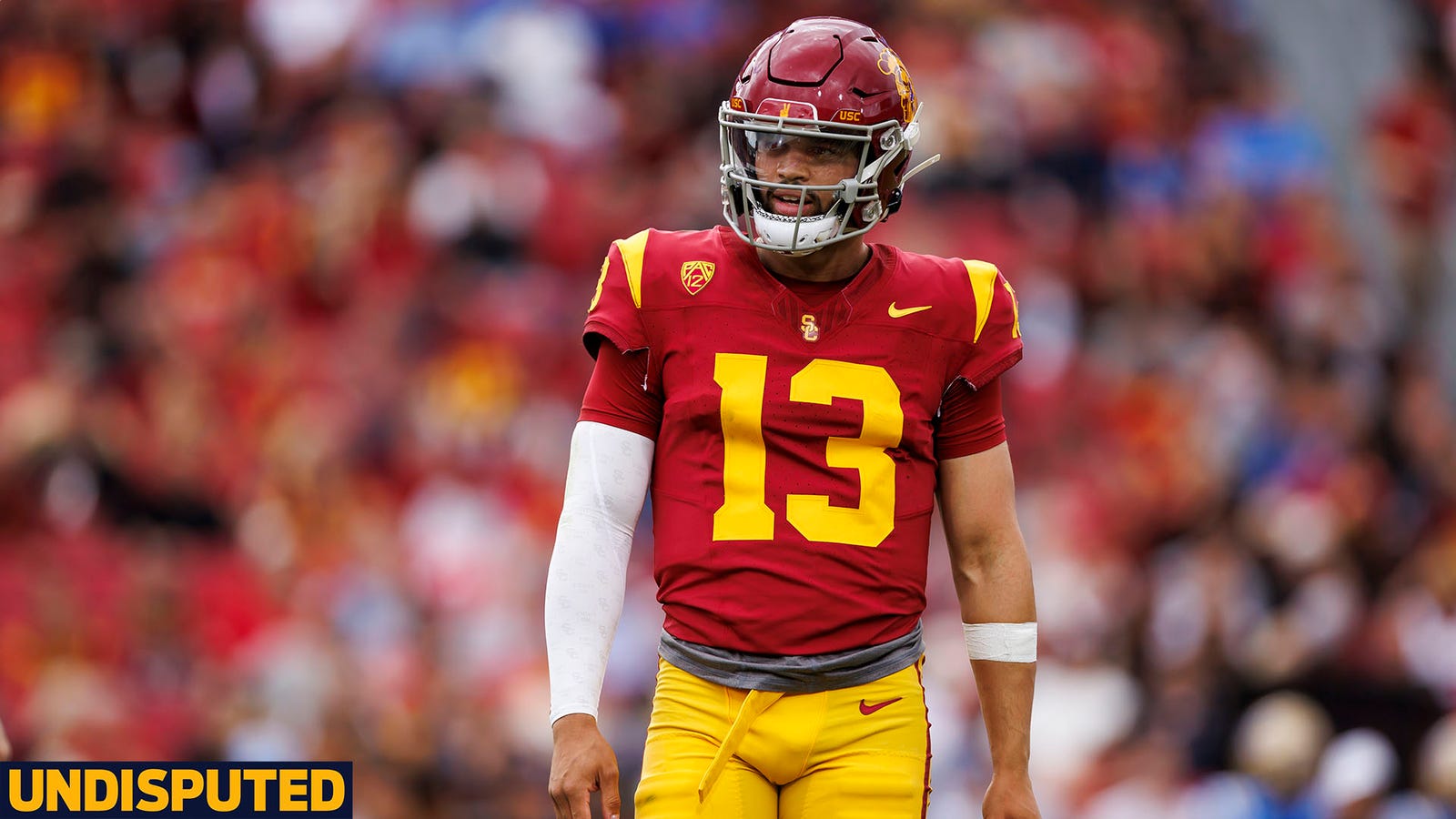Johnny Manziel experienced the highest of highs and lowest of lows in football.
The winner of the 2012 Heisman Trophy award at Texas A&M, Manziel was a first-round draft choice of the Cleveland Browns in 2014. That said, Manziel only made eight starts in the NFL, and the Browns released him following his second season (2015); he never appeared in an NFL game thereafter. It has been documented that Manziel struggled with drugs, alcohol and mental health.
On Wednesday’s edition of “Undisputed,” Manziel pinpointed the lowest point of his football career.
“I went from a person in college that never shied away from the moment, never backed down from getting an opportunity to walk into the biggest, baddest, best stage ever and then walking into that stadium in Cleveland to start that first game was like the first time I had really questioned my ability in a stadium in front of people,” Manziel told Skip Bayless. “And when you question your ability and yourself, I think it oozes out into your play on the field.
“A low point is walking out of that stadium that day and not scoring a single point and probably for the first time maybe ever in my entire football career, we don’t even get a chance to kick a field goal … the personal side of things when you start to question your ability and really ‘Is this what I’m meant to do? Is this what my calling is? Am I as good as what I remember I am type of thing?'”
The game Manziel referenced came in Week 15 of the 2014 season, a contest which saw Cleveland get silenced by the AFC North-rival Cincinnati Bengals on its home turf, 30-0. Manziel threw for just 80 yards, while throwing two interceptions and posting a 27.3 passer rating. In his rookie season, he made seven appearances, two of them being starts, and finished with just 175 passing yards.
While Manziel made six starts and had his moments in 2015, he was unable to lock down Cleveland’s full-time quarterback gig and was released after the season. The Browns had traded for the No. 22 pick in the 2014 NFL Draft on draft night to select Manziel, who had a decorated collegiate career at Texas A&M.
Manziel’s Heisman campaign came in his 2012 season, making him the first player to ever win the award as a freshman. In that season, he totaled an astonishing 3,706 passing yards, 1,410 rushing yards, 26 passing touchdowns and 21 rushing touchdowns.
Furthermore, the Aggies finished the 2012 season 11-2 overall (6-2 in SEC play), highlighted by beating No. 1 Alabama in Tuscaloosa and dismantling No. 12 Oklahoma in the Cotton Bowl. Manziel finished fifth in Heisman voting the following year (2013).
Manziel reflected on that magical 2012 season.
Johnny Manziel previews NFL Draft QB prospects: Williams, Daniels, McCarthy & Maye

“[I felt] on top of the world for being a Texas kid who got to do what I did, I don’t think even at the time I realized what the magnitude of being the first freshman to win that trophy truly meant,” Manziel said about winning the Heisman Trophy. “We went back-to-back with freshmen winning the Heisman. Jameis [Winston] came in the next year and won it as a freshman again. To break down that barrier of what was really considered like taboo for a freshman to win it [was huge]. There was a lot of bias, and I was very nervous going into the Heisman Trophy ceremony that I wouldn’t get the trophy just based on what classification I was in school, and I think it all was a fair point.
“It’s a lot of pressure. It’s a lot of notoriety to have on your back at such an early, young age, one that I don’t think I handled all the way the best all the time, but looking back at it now, how can you? I was in a position where nobody had really ever been before in a sense.”
Netflix released a documentary on Manziel in 2023, “Untold: Johnny Football,” which detailed his entire football career. Manziel feels that documentary had a positive impact on his everyday life.
“The way that people come up to me now is in such a better manner than it was before,” Manziel said. “For years, after getting cut in Cleveland, I think people were very down on me and had every right to be based off the way that I was, how I acted, really the ‘Johnny Football’ persona that I had was tired and played out, and people were kind of sick it, and it would show in my day-to-day interactions with people.
“And since the documentary has dropped, life is positive. People who come up to me, it’s more the sense of ‘Hey, good to see you. Glad you’re here, man. Wish you nothing but the best.’ That’s interactions I get in life today that I didn’t get before the documentary came out.”
[Want great stories delivered right to your inbox? Create or log in to your FOX Sports account, follow leagues, teams and players to receive a personalized newsletter daily.]

Get more from National Football League Follow your favorites to get information about games, news and more
